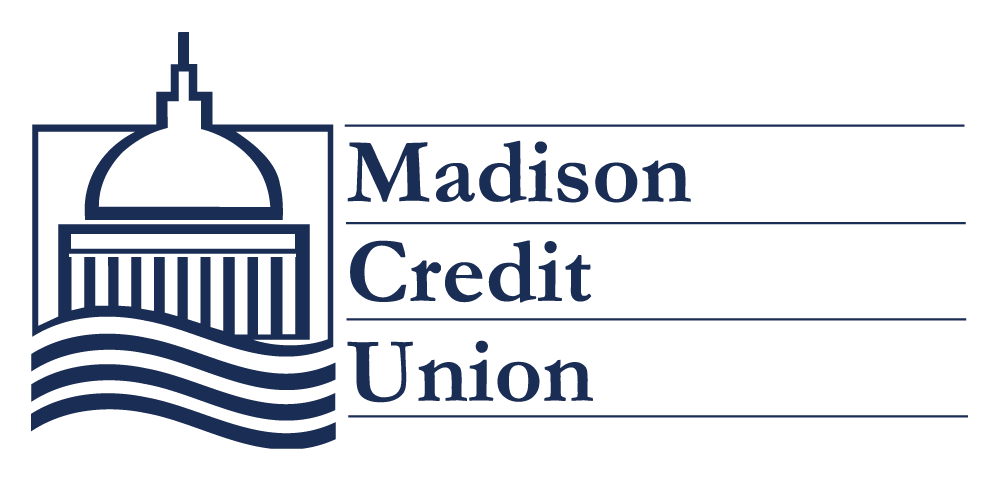
Identity Theft: Protect and Prevent
Jeff Kersten, Outreach Specialist
Wisconsin Department of Agriculture, Trade and Consumer Protection (DATCP)
May 20th, 2025 @ 1PM
Identity theft continues to be the fastest growing crime in the United States. The more you learn about it, the less vulnerable you are. Jeff Kersten will explain the different types of identity theft, how to recognize it and how to prevent it – including information about Fraud Alerts and Security Freezes. Receive tips for safeguarding personal information and how to recover from Identity Theft.
Jeff is an Outreach Specialist for the Bureau of Consumer Protection within the Wisconsin Department of Agriculture, Trade and Consumer Protection. As an Outreach Specialist, Jeff travels around the state to educate the public, businesses, and law enforcement on common scams & fraud, privacy protection, data security, identity theft, and other areas of consumer protection. Jeff has over 12 years of experience as a police officer and is a prior Consumer Protection Investigator for the Bureau of Consumer Protection.

Common Scams & Fraud
Jeff Kersten, Outreach Specialist
Wisconsin Department of Agriculture, Trade and Consumer Protection (DATCP)
July 22nd, 2025 @ 1PM
Jeff Kersten will discuss the details of common scams, the warning signs of a scam, and what to do if you or someone you know falls victim to a scam or fraud. As Wisconsin’s lead agency for consumer protection, the Bureau of Consumer Protection at the Wisconsin Department of Agriculture Trade and Consumer Protection, provides information and education, mediates complaints, investigates cases, and takes enforcement actions to fight fraudulent and deceptive practices that harm consumers and honest businesses.
Jeff is an Outreach Specialist for the Bureau of Consumer Protection within the Wisconsin Department of Agriculture, Trade and Consumer Protection. As an Outreach Specialist, Jeff travels around the state to educate the public, businesses, and law enforcement on common scams & fraud, privacy protection, data security, identity theft, and other areas of consumer protection. Jeff has over 12 years of experience as a police officer and is a prior Consumer Protection Investigator for the Bureau of Consumer Protection.
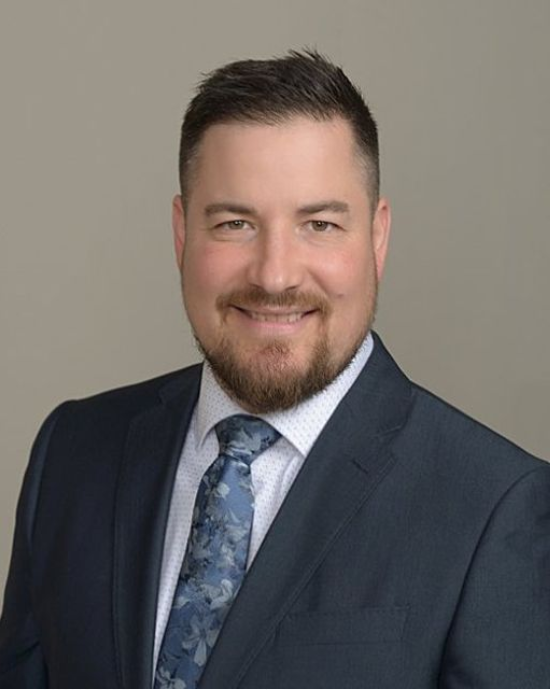
Homebuying Workshop
Dustin Becker w/ AmeriCU Mortgage
Recorded on April 24th, 2025
Join us for a home buying conversation with Dustin Becker from AmeriCU Mortgage. Dustin will share valuable tips for knowing what lenders look for, buying a home in a seller’s market, explore current down payment assistance options, and more.
Dustin Becker has been building long lasting relationships in the financial sector for more than 10 years. It is his passion to help find the best financing option to suit his client’s needs. Licensed in both Wisconsin and Minnesota, Dustin will take the extra steps to ensure a smooth process.

Cybersecurity:
Popular Scams & Tips to Keep Your Information Safe
Ret. Detective George Chavez
Recorded on April 2, 2024
Retired Detective George Chavez worked in Law Enforcement for 32 years. While working with the Madison Police Department, Det. Chavez did significant work in the area ‘s of social media investigation, dark web investigation and was a nationally known instructor to agencies throughout the United States and Canada.
Detective Chavez received his certification from the EC Council as an ethical hacker in 2017 conducted in Washington DC.
In retirement, Detective Chavez is now a chaplain serving the community and is asked to provide training in trauma, service and expertise in gangs, narcotics, social media and general cyber security.
Retired Detective Chavez has provided presentations to Law Enforcement agencies, Community Groups and various schools in how to recognize potential cyber security vulnerabilities.
- Beware of any email, text, or phone call of someone asking for your personal information. Don’t click on links in an email or text message before you have verified them. (ex. If you aren’t expecting a UPS shipment, don’t click on a link in a text from UPS.)
- Scammers often use pressure tactics and a sense of urgency to get you to give up personal information quickly so that you don’t have time to think twice.
- Create a code word to use with family members in case anyone is in trouble. In a popular grandparent scam, scammers pretend to be a grandchild in desperate need for money. The use of a code word can prove if a situation is real or simply a scam.
- Don’t use the same password for all of your accounts. And choose a complicated password. It can be a phrase memorable to you, song lyrics, etc.
- Use a passkey for passwords. Passkeys are a replacement for passwords that provide faster, easier, and more secure sign-ins to websites and apps across a user’s devices. Unlike passwords, passkeys are always strong and phishing-resistant. A safe and popular passkey provider is FIDO.
- Most common scams:
- Student Loan Forgiveness Scam – criminals are looking for your social security number and your bank account number.
- Phone Scams – Don’t give money or information to anyone cold-calling you over the phone asking for donations or your personal information. If you would like to donate to a cause, look up the information yourself and call them directly. If you are unsure someone is who they say they are from your credit card company or bank, hang up and call your credit card or bank directly.
- Impersonators or Apps – Be careful what you download and where you are downloading it from.
- Crypto Currency Scams – Unless you are tech savvy and have done your homework, do not get involved in crypto currencies.
- Online Purchase Scams – Scammers encourage your to buy something sight-unseen, or ‘hurry and place a deposit’ before it’s gone. The object may never have existed in the first place.
- Employment Scams – Scammers often attack the vulnerable. In this case, scammers pretend to be potential employers, asking for your personal information, including your social security number.
Click to view and download the webinar PPT.
Have questions for George? Send them here and we’ll them to him.
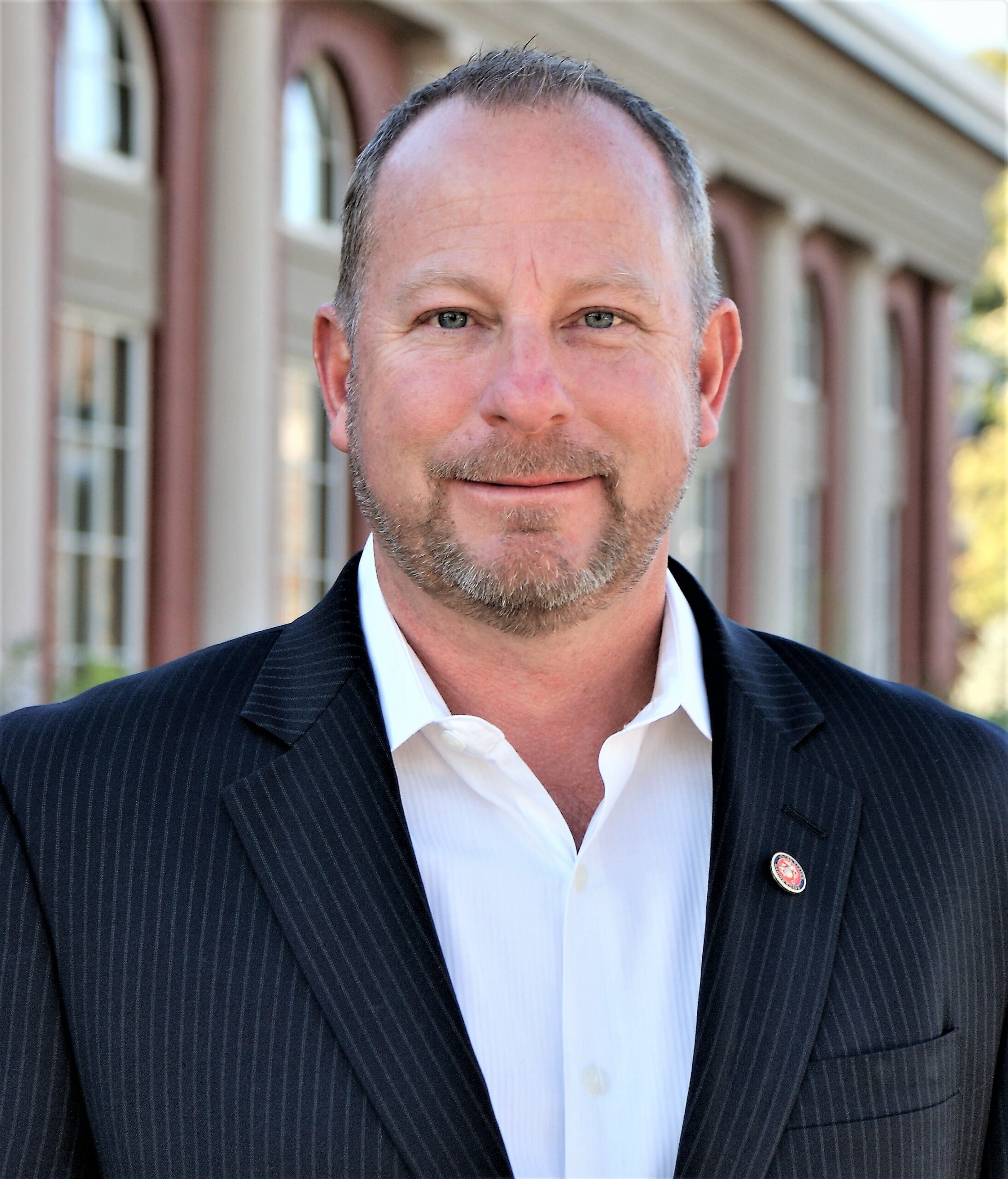
Investing Insights:
Basics of Stocks, Bonds and Investing
Matt Crabtree, CFP
Recorded on April 9, 2024
Matt graduated from North County HS in 1987 before serving 6yrs in the US Marine Corps as a Combat Photographer. In 1999 he graduated with a Bachelors in Information Systems Management from the University of Phoenix and obtained a Certificate in Financial Planning from Pepperdine University in 2011. He became a Certified Financial Planner™ in 2015 and continues to hold that certification.
In 2011 Matt developed his first college level course in Business Finance and continued his work with 6 more courses in business and finance which he still instructs today.
Matt has served on several boards including the Murrieta Chamber of Commerce in Southern California, as Treasurer of the Lake Timberline Board of Directors (present), and as President of the Lead Belt Golf Club (present).
He and his wife, Diana, live full time in their home on Goff Springs in Lake Timberline. Together, they have 6 children and 7 grandchildren with their 8th on the way! They enjoy being involved in the community as well as golfing, fishing, and traveling. Semper Fi!
- Aggressive stocks, funds, investments offer more risk but give higher returns than safer bonds and funds.
- When making investments, use your age and goal as a factor of how risky or safe you’d like to invest your money. When saving for retirement, it’s best to start aggressive or risky with your investing as you are younger and have time to ride out the market. As you get closer to retirement, invest your money more conservatively. (See graph in presentation.)
- Maximize your 401k. If an employer offers 401k matching, meeting their match amount gives you free money to invest and grow.
- If you want to continue to invest after maximizing your 401k, look to a Roth IRA (pay taxes on money you invest today, so you don’t have to pay taxes on the money earned later) or a traditional IRA, if you need tax breaks today, and don’t mind paying taxes on the money earned later.
- There are simulators that allow you to trade with play money to see how you would do.
Use BrokerCheck when choosing a Financial Advisor.
View Callan Periodic Table of Investment Returns: Year-End 2023
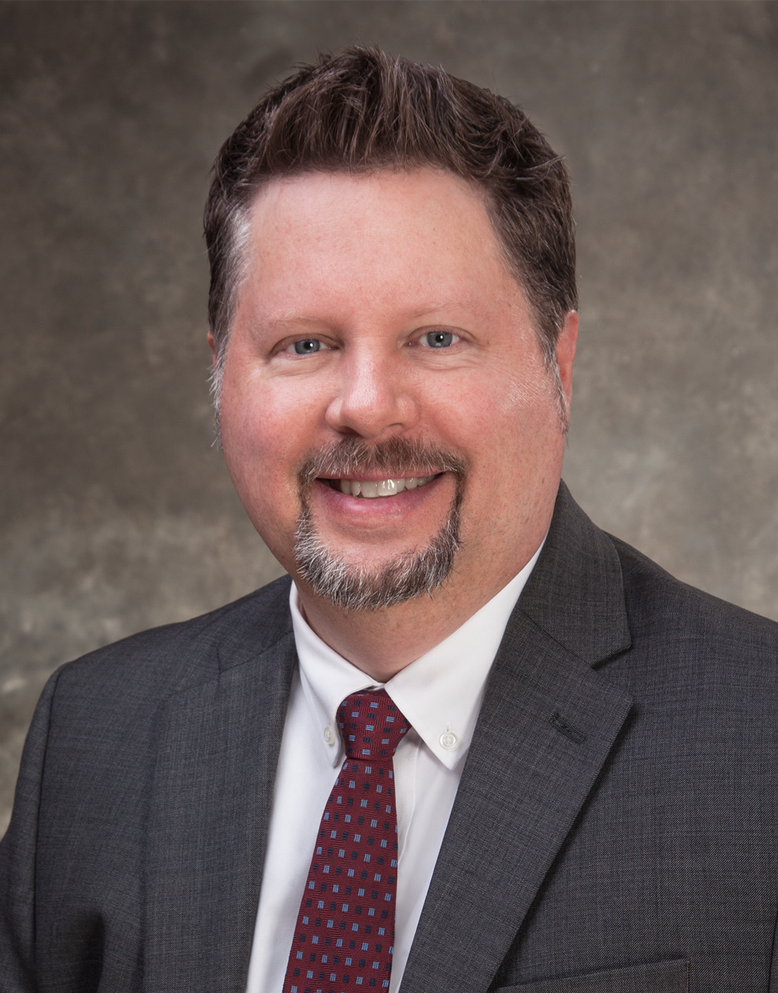
Estate Planning:
Preparing Wills & Trusts
Gregg Auby, Esq.
Tuesday, April 16th @ 2 PM
Gregg Auby is a Shareholder of the Laffey, Sabranek, Auby, & Ristau, S.C., concentrating his practice in the areas of estate planning, probate, and trust administration.
In his nearly thirty years of practicing law, Gregg has enjoyed helping thousands of individuals and families with their estate plans and administrations. Gregg and his family live in Monona and are very involved in the Madison youth music arts community.
Top rated by Super Lawyers, Gregg received his B.S. in Economics at the University of Wisconsin – Madison and his J.D. from the University of Wisconsin Law School.
Attorney Gregg Auby offers a fee free consultation if anyone has more questions they’d like to ask. Please feel free to email Gregg here.
- An Estate Plan encompasses:
- Wills
- Revocable Trusts (and other trusts)
- Advanced Directives (including Healthcare Power of Attorney, Declaration to Physician, and General Durable Power of Attorney)
- Marital Property Agreements (Marital Property opt-in, opt-out agreements)
- Retirement Benefits
- Life Insurance
- Long-Term Care Insurance
- Wisconsin has not estate tax and no inheritance tax.
- The federal government currently has a $13.6 million tax exemption ($27.2 million for married couples). This is the amount you can leave or gift to your loved ones at your death without incurring an estate tax or gift tax liability.
- Automobiles cannot be left as POD (paid on death) or TOD (transferred on death). Wisconsin law states that if the decedent’s solely-owned property (there is no joint named holder) is valued than $50,000, probate is not required. A vehicle title can be transferred to an heir or surviving spouse by completing and filing the DMV form MV2300. If the assets exceed $50,000 in value, and the items are not in a Trust, probate is necessary.
The Differences: Will vs Revocable Trust
- Will Pros:
- Simple to setup
- Inexpensive
- Less future maintenance
- Court supervision (can be a benefit in some instances
- Will Cons:
- Items can go to probate
- “Ancillary” probate (if property held in another state, items could go to probate in two different states)
- Lack of privacy (a person’s Will gets filed with the court and made public
- Revocable Trust Pros:
- Avoids probate (in other states too)
- Incapacity planning
- All private (all information stays private and does not get filed with the courts)
- Seamless administration
- Revocable Trust Cons:
- More expensive
- More maintenance (costs in keeping it up-to-date)
- Comfort factor (have to make sure any new assets or asset changes are kept up-to-date)
- Lack of court supervision (in certain instances)

Home Buyer Guide 2024
Dustin Becker w/ AmeriCU Mortgage
Recorded on April 23rd
Dustin Becker has been building long lasting relationships in the financial sector for more than 10 years. It is his passion to help find the best financing option to suit his client’s needs. Licensed in both Wisconsin and Minnesota, Dustin will take the extra steps to ensure a smooth process.
We experienced some technical difficulties during the webinar which affected the recording. The recording is still audible however a little sped up at times. We apologize for the inconvenience.
- Four key pieces that mortgage lenders look at when evaluating a borrower:
- Credit – Credit Score
- Capital – Assets (checking, savings, 401k, gift money, etc.)
- Capacity – Employment stability and income
- Collateral – The condition of the purchasing property
- A person’s credit score is calculated by:
- 10% for type of credit (mortgage, installment payment loans, etc.)
- 10% for number of credit inquiries (when applying for credit cards and loans)
- 35% for payment history (whether bills are paid on time)
- 30% for available credit (ie. money you have available on a credit card balance)
- It’s always best to keep the balance of your credit card 30% below your credit limit – if your limit is $1000, only carry a balance of less than $300.
- 15% for length of history (how long you have held credit cards, loans, etc.)
- If you are not using a credit card, it’s best for your credit score to leave it open and unused. It will add points to your length of history and it will add points to your available credit.
- Escrow and Home Owner’s Insurance are required to be grouped with mortgage if you owe more than 80% on the property. If you make a down payment of at least 20% you will not have to escrow your property taxes or bundle home owner’s insurance with the lender.
- More people are using their retirement (401k) money to increase their assets and qualify for loans.
For further questions, contact Dustin directly: email Dustin at dbecker@americu.com or call or text Dustin at (920) 203-0853.
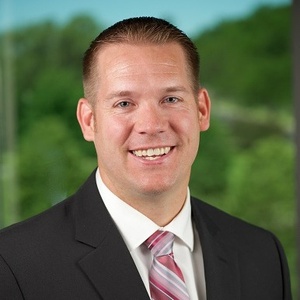
Retirement Planning:
Preparing for a Retirement You Can Enjoy
John Litscher, CFP, CRPC, AWMA
Recorded on April 30th
After graduating from Lake Forest College in Illinois with a BA in Business Administration with an emphasis on finance, John joined Lincoln Financial Advisors in May of 2000 as a Private Wealth Advisor. After his first year at Lincoln, John established his commitment and knowledge of the financial industry by leading the nation in business versus other first year representatives. Since then, John has been honored with the Premier Partners® Program numerous times, most recently in 2023, while serving his clients.
John has an extensive background in working with employer benefits and helping his clients with their Investment, Estate Planning Strategies, and Retirement Planning. He has worked with established employers in the Wisconsin area, such as UW Madison, UW Hospital and Clinics, City of Madison, the Madison Metropolitan School District, Medical College of Wisconsin, as well as Meriter Hospital and Edgewood College. In 2003, along with two other partners, John started his own company through Lincoln Financial Advisors. The Capital Group now has over $900 million under management and fifteen employees.
In his free time, John enjoys playing and watching sports and helping in his community. He is currently serving on the Summit Credit Union’s Board of Directors and has also served on the board of the University of Wisconsin Hospital and Clinics, Gilda’s Club and the Tommy G Thompson Charity Board. John enjoys being a volunteer Wish Granter for the Make-A-Wish Wisconsin charity where he works with the families of a Wish child and helps them through the journey from start to finish. John also established a monthly meal program providing home-cooked meals to the children, families, and workers of the American Family Children’s Hospital and in his past work with the Optimist Club of Madison led the Southern Wisconsin Optimist Children’s Cancer Campaign.
The Capital Group was recognized as one of the “Best Financial Advisors in Madison” by Expertise.com every year since 2022.
- 28% of American workers have no retirement savings.
- Only 34% of American households have IRAs.
- What is your picture of retirement look like? How will you manage your income over a 30 year retirement?
- John offered some great questions to get you thinking about your retirement:
- How much income will you need?
- How much home will you need?
- Where will you live?
- What will you do in retirement? Do you plan to have income generating activities (job, real estate properties, own business) or expense generating activities (hobbies, travel)?
- Different sources of income:
- Social Security – For life, adjusts to inflation automatically
- Pensions – For life, fixed or variable income
- Annuities – Must manage for sustainability, fixed or variable income
- Part-Time Work – Fixed or variable income, not permanent (health, old age)
- Other Income – Real estate, business interests
- Income from Investment – IRA, 401k, etc
- Common breakdown of where most of retirement income comes from:
- Social Security (~25%), Self-Funded/IRA/401k (~53%), Working (~13%), Pension (~7%), Inheritance (~2%), Home Equity (~2%)
- Bucket Strategy
- Put investments into buckets to manage your risks based on when funds will be needed: 0-5yr Bucket (low risk, easy access) 5-10yr Bucket (a little higher risk), +10yr Bucket (highest risk investments)
- Know your social security benefits. Check your social security account at least once a year to ensure they have your salary correct and look over your Social Security Estimator.
- Social Security Estimator: www.SSA.gov/estimator
- My Social Security: https://www.ssa.gov/myaccount/
Questions for John?
Contact him: John.Litscher@TCGWI.com or via phone at: 608-268-5100.
- Upcoming Webinars
-

Identity Theft: Protect and Prevent
Jeff Kersten, Outreach Specialist
Wisconsin Department of Agriculture, Trade and Consumer Protection (DATCP)May 20th, 2025 @ 1PM
Identity theft continues to be the fastest growing crime in the United States. The more you learn about it, the less vulnerable you are. Jeff Kersten will explain the different types of identity theft, how to recognize it and how to prevent it – including information about Fraud Alerts and Security Freezes. Receive tips for safeguarding personal information and how to recover from Identity Theft.
Jeff is an Outreach Specialist for the Bureau of Consumer Protection within the Wisconsin Department of Agriculture, Trade and Consumer Protection. As an Outreach Specialist, Jeff travels around the state to educate the public, businesses, and law enforcement on common scams & fraud, privacy protection, data security, identity theft, and other areas of consumer protection. Jeff has over 12 years of experience as a police officer and is a prior Consumer Protection Investigator for the Bureau of Consumer Protection.

Common Scams & Fraud
Jeff Kersten, Outreach Specialist
Wisconsin Department of Agriculture, Trade and Consumer Protection (DATCP)July 22nd, 2025 @ 1PM
Jeff Kersten will discuss the details of common scams, the warning signs of a scam, and what to do if you or someone you know falls victim to a scam or fraud. As Wisconsin’s lead agency for consumer protection, the Bureau of Consumer Protection at the Wisconsin Department of Agriculture Trade and Consumer Protection, provides information and education, mediates complaints, investigates cases, and takes enforcement actions to fight fraudulent and deceptive practices that harm consumers and honest businesses.
Jeff is an Outreach Specialist for the Bureau of Consumer Protection within the Wisconsin Department of Agriculture, Trade and Consumer Protection. As an Outreach Specialist, Jeff travels around the state to educate the public, businesses, and law enforcement on common scams & fraud, privacy protection, data security, identity theft, and other areas of consumer protection. Jeff has over 12 years of experience as a police officer and is a prior Consumer Protection Investigator for the Bureau of Consumer Protection.
- Recorded Webinars
-

Homebuying Workshop
Dustin Becker w/ AmeriCU Mortgage
Recorded on April 24th, 2025
Join us for a home buying conversation with Dustin Becker from AmeriCU Mortgage. Dustin will share valuable tips for knowing what lenders look for, buying a home in a seller’s market, explore current down payment assistance options, and more.
Dustin Becker has been building long lasting relationships in the financial sector for more than 10 years. It is his passion to help find the best financing option to suit his client’s needs. Licensed in both Wisconsin and Minnesota, Dustin will take the extra steps to ensure a smooth process.

Cybersecurity:
Popular Scams & Tips to Keep Your Information SafeRet. Detective George Chavez
Recorded on April 2, 2024
Retired Detective George Chavez worked in Law Enforcement for 32 years. While working with the Madison Police Department, Det. Chavez did significant work in the area ‘s of social media investigation, dark web investigation and was a nationally known instructor to agencies throughout the United States and Canada.
Detective Chavez received his certification from the EC Council as an ethical hacker in 2017 conducted in Washington DC.
In retirement, Detective Chavez is now a chaplain serving the community and is asked to provide training in trauma, service and expertise in gangs, narcotics, social media and general cyber security.
Retired Detective Chavez has provided presentations to Law Enforcement agencies, Community Groups and various schools in how to recognize potential cyber security vulnerabilities.
- Beware of any email, text, or phone call of someone asking for your personal information. Don’t click on links in an email or text message before you have verified them. (ex. If you aren’t expecting a UPS shipment, don’t click on a link in a text from UPS.)
- Scammers often use pressure tactics and a sense of urgency to get you to give up personal information quickly so that you don’t have time to think twice.
- Create a code word to use with family members in case anyone is in trouble. In a popular grandparent scam, scammers pretend to be a grandchild in desperate need for money. The use of a code word can prove if a situation is real or simply a scam.
- Don’t use the same password for all of your accounts. And choose a complicated password. It can be a phrase memorable to you, song lyrics, etc.
- Use a passkey for passwords. Passkeys are a replacement for passwords that provide faster, easier, and more secure sign-ins to websites and apps across a user’s devices. Unlike passwords, passkeys are always strong and phishing-resistant. A safe and popular passkey provider is FIDO.
- Most common scams:
- Student Loan Forgiveness Scam – criminals are looking for your social security number and your bank account number.
- Phone Scams – Don’t give money or information to anyone cold-calling you over the phone asking for donations or your personal information. If you would like to donate to a cause, look up the information yourself and call them directly. If you are unsure someone is who they say they are from your credit card company or bank, hang up and call your credit card or bank directly.
- Impersonators or Apps – Be careful what you download and where you are downloading it from.
- Crypto Currency Scams – Unless you are tech savvy and have done your homework, do not get involved in crypto currencies.
- Online Purchase Scams – Scammers encourage your to buy something sight-unseen, or ‘hurry and place a deposit’ before it’s gone. The object may never have existed in the first place.
- Employment Scams – Scammers often attack the vulnerable. In this case, scammers pretend to be potential employers, asking for your personal information, including your social security number.
Click to view and download the webinar PPT.
Have questions for George? Send them here and we’ll them to him.

Investing Insights:
Basics of Stocks, Bonds and InvestingMatt Crabtree, CFP
Recorded on April 9, 2024
Matt graduated from North County HS in 1987 before serving 6yrs in the US Marine Corps as a Combat Photographer. In 1999 he graduated with a Bachelors in Information Systems Management from the University of Phoenix and obtained a Certificate in Financial Planning from Pepperdine University in 2011. He became a Certified Financial Planner™ in 2015 and continues to hold that certification.
In 2011 Matt developed his first college level course in Business Finance and continued his work with 6 more courses in business and finance which he still instructs today.
Matt has served on several boards including the Murrieta Chamber of Commerce in Southern California, as Treasurer of the Lake Timberline Board of Directors (present), and as President of the Lead Belt Golf Club (present).
He and his wife, Diana, live full time in their home on Goff Springs in Lake Timberline. Together, they have 6 children and 7 grandchildren with their 8th on the way! They enjoy being involved in the community as well as golfing, fishing, and traveling. Semper Fi!
- Aggressive stocks, funds, investments offer more risk but give higher returns than safer bonds and funds.
- When making investments, use your age and goal as a factor of how risky or safe you’d like to invest your money. When saving for retirement, it’s best to start aggressive or risky with your investing as you are younger and have time to ride out the market. As you get closer to retirement, invest your money more conservatively. (See graph in presentation.)
- Maximize your 401k. If an employer offers 401k matching, meeting their match amount gives you free money to invest and grow.
- If you want to continue to invest after maximizing your 401k, look to a Roth IRA (pay taxes on money you invest today, so you don’t have to pay taxes on the money earned later) or a traditional IRA, if you need tax breaks today, and don’t mind paying taxes on the money earned later.
- There are simulators that allow you to trade with play money to see how you would do.
Use BrokerCheck when choosing a Financial Advisor.
View Callan Periodic Table of Investment Returns: Year-End 2023

Estate Planning:
Preparing Wills & TrustsGregg Auby, Esq.
Tuesday, April 16th @ 2 PM
Gregg Auby is a Shareholder of the Laffey, Sabranek, Auby, & Ristau, S.C., concentrating his practice in the areas of estate planning, probate, and trust administration.
In his nearly thirty years of practicing law, Gregg has enjoyed helping thousands of individuals and families with their estate plans and administrations. Gregg and his family live in Monona and are very involved in the Madison youth music arts community.
Top rated by Super Lawyers, Gregg received his B.S. in Economics at the University of Wisconsin – Madison and his J.D. from the University of Wisconsin Law School.
Attorney Gregg Auby offers a fee free consultation if anyone has more questions they’d like to ask. Please feel free to email Gregg here.
- An Estate Plan encompasses:
- Wills
- Revocable Trusts (and other trusts)
- Advanced Directives (including Healthcare Power of Attorney, Declaration to Physician, and General Durable Power of Attorney)
- Marital Property Agreements (Marital Property opt-in, opt-out agreements)
- Retirement Benefits
- Life Insurance
- Long-Term Care Insurance
- Wisconsin has not estate tax and no inheritance tax.
- The federal government currently has a $13.6 million tax exemption ($27.2 million for married couples). This is the amount you can leave or gift to your loved ones at your death without incurring an estate tax or gift tax liability.
- Automobiles cannot be left as POD (paid on death) or TOD (transferred on death). Wisconsin law states that if the decedent’s solely-owned property (there is no joint named holder) is valued than $50,000, probate is not required. A vehicle title can be transferred to an heir or surviving spouse by completing and filing the DMV form MV2300. If the assets exceed $50,000 in value, and the items are not in a Trust, probate is necessary.
The Differences: Will vs Revocable Trust
- Will Pros:
- Simple to setup
- Inexpensive
- Less future maintenance
- Court supervision (can be a benefit in some instances
- Will Cons:
- Items can go to probate
- “Ancillary” probate (if property held in another state, items could go to probate in two different states)
- Lack of privacy (a person’s Will gets filed with the court and made public
- Revocable Trust Pros:
- Avoids probate (in other states too)
- Incapacity planning
- All private (all information stays private and does not get filed with the courts)
- Seamless administration
- Revocable Trust Cons:
- More expensive
- More maintenance (costs in keeping it up-to-date)
- Comfort factor (have to make sure any new assets or asset changes are kept up-to-date)
- Lack of court supervision (in certain instances)

Home Buyer Guide 2024
Dustin Becker w/ AmeriCU Mortgage
Recorded on April 23rd
Dustin Becker has been building long lasting relationships in the financial sector for more than 10 years. It is his passion to help find the best financing option to suit his client’s needs. Licensed in both Wisconsin and Minnesota, Dustin will take the extra steps to ensure a smooth process.
We experienced some technical difficulties during the webinar which affected the recording. The recording is still audible however a little sped up at times. We apologize for the inconvenience.
- Four key pieces that mortgage lenders look at when evaluating a borrower:
- Credit – Credit Score
- Capital – Assets (checking, savings, 401k, gift money, etc.)
- Capacity – Employment stability and income
- Collateral – The condition of the purchasing property
- A person’s credit score is calculated by:
- 10% for type of credit (mortgage, installment payment loans, etc.)
- 10% for number of credit inquiries (when applying for credit cards and loans)
- 35% for payment history (whether bills are paid on time)
- 30% for available credit (ie. money you have available on a credit card balance)
- It’s always best to keep the balance of your credit card 30% below your credit limit – if your limit is $1000, only carry a balance of less than $300.
- 15% for length of history (how long you have held credit cards, loans, etc.)
- If you are not using a credit card, it’s best for your credit score to leave it open and unused. It will add points to your length of history and it will add points to your available credit.
- Escrow and Home Owner’s Insurance are required to be grouped with mortgage if you owe more than 80% on the property. If you make a down payment of at least 20% you will not have to escrow your property taxes or bundle home owner’s insurance with the lender.
- More people are using their retirement (401k) money to increase their assets and qualify for loans.
For further questions, contact Dustin directly: email Dustin at dbecker@americu.com or call or text Dustin at (920) 203-0853.

Retirement Planning:
Preparing for a Retirement You Can EnjoyJohn Litscher, CFP, CRPC, AWMA
Recorded on April 30th
After graduating from Lake Forest College in Illinois with a BA in Business Administration with an emphasis on finance, John joined Lincoln Financial Advisors in May of 2000 as a Private Wealth Advisor. After his first year at Lincoln, John established his commitment and knowledge of the financial industry by leading the nation in business versus other first year representatives. Since then, John has been honored with the Premier Partners® Program numerous times, most recently in 2023, while serving his clients.
John has an extensive background in working with employer benefits and helping his clients with their Investment, Estate Planning Strategies, and Retirement Planning. He has worked with established employers in the Wisconsin area, such as UW Madison, UW Hospital and Clinics, City of Madison, the Madison Metropolitan School District, Medical College of Wisconsin, as well as Meriter Hospital and Edgewood College. In 2003, along with two other partners, John started his own company through Lincoln Financial Advisors. The Capital Group now has over $900 million under management and fifteen employees.
In his free time, John enjoys playing and watching sports and helping in his community. He is currently serving on the Summit Credit Union’s Board of Directors and has also served on the board of the University of Wisconsin Hospital and Clinics, Gilda’s Club and the Tommy G Thompson Charity Board. John enjoys being a volunteer Wish Granter for the Make-A-Wish Wisconsin charity where he works with the families of a Wish child and helps them through the journey from start to finish. John also established a monthly meal program providing home-cooked meals to the children, families, and workers of the American Family Children’s Hospital and in his past work with the Optimist Club of Madison led the Southern Wisconsin Optimist Children’s Cancer Campaign.
The Capital Group was recognized as one of the “Best Financial Advisors in Madison” by Expertise.com every year since 2022.
- 28% of American workers have no retirement savings.
- Only 34% of American households have IRAs.
- What is your picture of retirement look like? How will you manage your income over a 30 year retirement?
- John offered some great questions to get you thinking about your retirement:
- How much income will you need?
- How much home will you need?
- Where will you live?
- What will you do in retirement? Do you plan to have income generating activities (job, real estate properties, own business) or expense generating activities (hobbies, travel)?
- Different sources of income:
- Social Security – For life, adjusts to inflation automatically
- Pensions – For life, fixed or variable income
- Annuities – Must manage for sustainability, fixed or variable income
- Part-Time Work – Fixed or variable income, not permanent (health, old age)
- Other Income – Real estate, business interests
- Income from Investment – IRA, 401k, etc
- Common breakdown of where most of retirement income comes from:
- Social Security (~25%), Self-Funded/IRA/401k (~53%), Working (~13%), Pension (~7%), Inheritance (~2%), Home Equity (~2%)
- Bucket Strategy
- Put investments into buckets to manage your risks based on when funds will be needed: 0-5yr Bucket (low risk, easy access) 5-10yr Bucket (a little higher risk), +10yr Bucket (highest risk investments)
- Know your social security benefits. Check your social security account at least once a year to ensure they have your salary correct and look over your Social Security Estimator.
- Social Security Estimator: www.SSA.gov/estimator
- My Social Security: https://www.ssa.gov/myaccount/
Questions for John?
Contact him: John.Litscher@TCGWI.com or via phone at: 608-268-5100.

